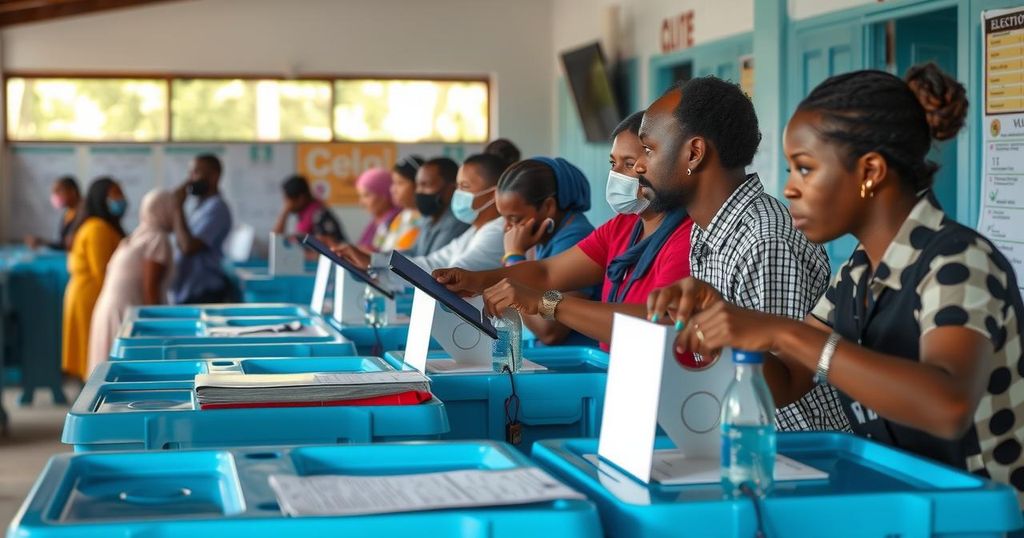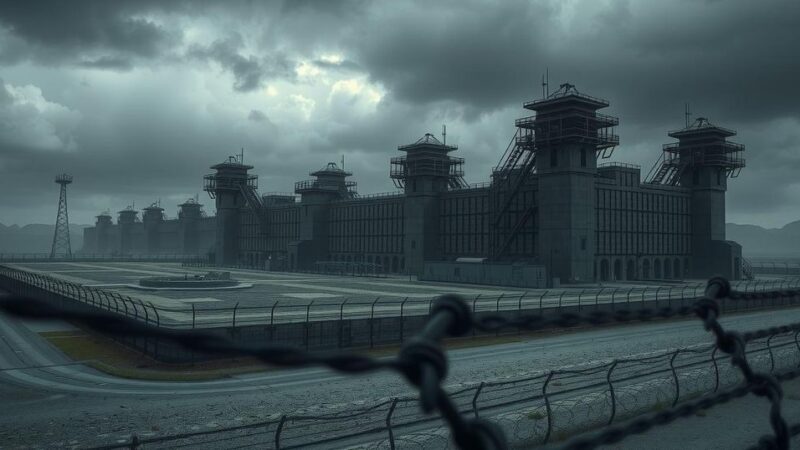Voters in Comoros are casting ballots to elect members of the 33-seat parliament amid claims of election fraud and authoritarianism under President Azali Assoumani. Approximately 338,000 individuals are registered to vote, with results expected by Friday. Some opposition factions have called for a boycott, while others encourage participation to highlight flaws in the regime.
Voters in Comoros are participating in elections to elect representatives for the archipelago’s 33-seat parliament. This electoral event occurs a year following President Azali Assoumani’s re-election, which the opposition claims was tainted by substantial irregularities. However, government officials have refuted these allegations. Early voting commenced on Sunday, with approximately 338,000 individuals registered to cast their ballots. The last parliamentary election in Comoros took place in January 2020, and nearly 100 candidates were authorized by the Supreme Court to compete for parliamentary seats.
Assoumani’s opponents have raised concerns regarding his consolidation of power, questioning his potential attempts to position his eldest son, Nour El-Fath, as his successor upon the conclusion of his term in 2029. Since seizing power through a coup in 1999, Assoumani has successfully won three subsequent elections. In a notable move, he bestowed extensive powers on his son in 2024, placing him in charge of coordinating governmental affairs. Although certain opposition factions, including Juwa, spearheaded by former President Ahmed Abdallah Sambi—currently serving a life sentence—have proclaimed a boycott of the elections, others have chosen to proceed with participation.
According to Hamidou Karihila, a candidate from the opposition Hope of the Comoros party, “The Azali regime is weakened … by participating in these elections we are contributing to further exposing the flaws in its system and accelerating its inevitable fall.” The election results are anticipated to be announced by Friday.
The political landscape of Comoros has been intensely contested, especially following President Azali Assoumani’s previous electoral victories marred by allegations of electoral fraud and authoritarian practices. Assoumani initially seized power through a coup in 1999 and has since maintained his leadership through contested elections, raising significant concerns among opposition groups. These factions have historically accused his administration of undermining democratic processes and stifling dissent. Presently, the political climate remains tense as various parties prepare for parliamentary elections amidst calls for electoral boycotts and accusations of potential succession plans involving the President’s son, further complicating the country’s governance and political stability.
In conclusion, the ongoing parliamentary elections in Comoros represent a critical juncture in the archipelago’s political narrative, characterized by allegations of authoritarian practices under President Assoumani. As voters head to the polls, the legitimacy of the electoral process remains under scrutiny. The outcome of these elections, slated to be revealed by Friday, could have significant repercussions for both the current administration’s stability and the future of democratic governance in the nation.
Original Source: www.merimbulanewsweekly.com.au






